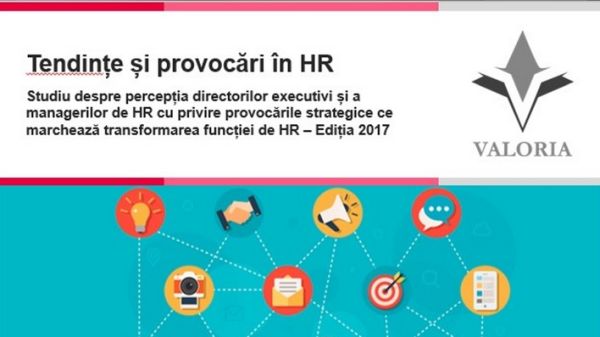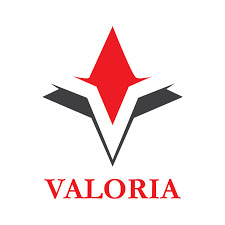In recent years, HR has begun to shift from a transactional towards a transformational role with a truly strategic contribution to the company. In this evolution, technology has an important contribution, which eliminates the burden of routine processes from the HR team. Because digitization and automation are replacing existing skill sets at a rising pace, HR specialists will need to develop their ability to adapt to this new landscape.
Digital technology is transforming human resources departments ... but is the HR department ready to change? Here is what the results of the study conducted by Valoria reveal about Romanian companies.
Automating HR processes
In 2017, 5 out of 10 respondents say they have a solution for automating HR processes, 34% say they do not have one yet, but plan to implement, while 15% say they do not have such solutions, nor do they plan to implement one.
In most cases, where the HR department uses IT solutions, they are punctual and deal with a particular process individually (such as payroll etc.). The essential component missing is the integration of these processes into one powerful tool. If 85% of companies say they are using payroll software, only 13% have software to manage their employee training. Only 17% use software to manage compensation and benefit programs, 19% say they use software for recruitment, and 26% have software for employee performance management.
Positive impact of the digital transformation in HR
Although 51% of the companies have estimated that the use of IT systems in the HR area has a positive impact on their business, the survey results show that 4 out of 10 respondents say the existing IT systems for managing recruitment have no impact on the company's ability to deliver an efficient HR, and one in ten thinks the impact is negative.
Of the responding companies, 47% believe that the use of HR technology is of high importance for the measurement of the department's performance (ROI), 28% are undecided or think it is only somewhat important, and 19% consider it a key element of critical importance.
Artificial intelligence and the HR function
In addition to IT systems for managing HR processes, the global trend is increasingly going towards integrating artificial intelligence into HR automation, especially for routine activities that are time consuming.
Only 30% of Romanian companies believe that artificial intelligence and process automation will be advanced enough to influence the HR function over the next 2-5 years, while 17% expect this period to be 6-10 years.
43% of companies believe that artificial intelligence is one of the most important trends that will significantly change the function of HR, other relevant trends being mobile and social media applications (47% of companies), political and economic developments (43%) and demographic change (42%).
The digitization budget in HR
6 out of 10 companies have approximately the same budget as last year allocated for the digitization of HR, 11% increased their budget by more than 20% in 2017, and 11% had an increase of less than 20%. However, for 7% of companies, this budget declined in 2017 by more than 20% compared to last year, while 9% had a decrease of less than 20% in this budget.
Conclusion
In the next years, in an era of digital transformation and Bid Data, there will be a significant change in employee engagement. The results of the study "Trends and Challenges in HR 2017" show that the biggest challenges faced by HR departments are finding specialists and retaining high-potential employees, as well as increasing employees' involvement.
In this battle for market talent, it is likely for companies exploiting technology to make the most of the potential the data in their human resources systems to win.


































